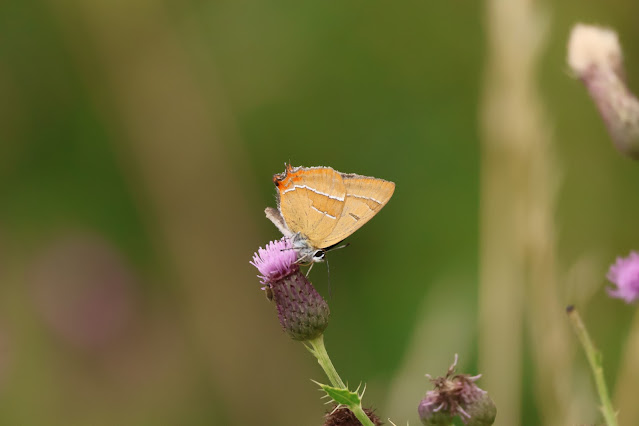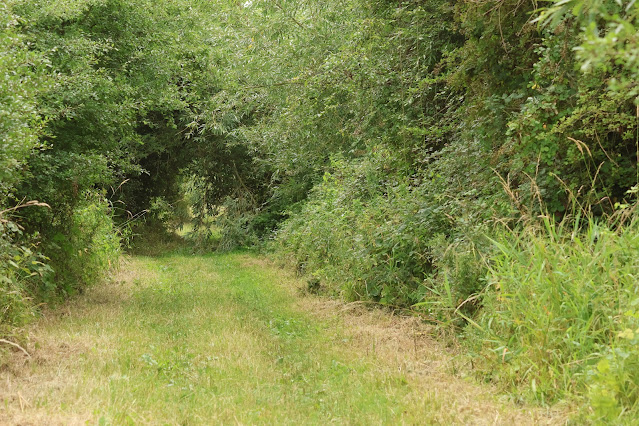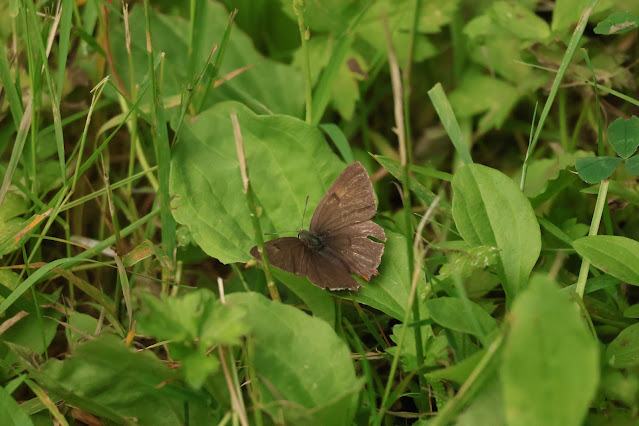As the butterfly season starts drawing to a close, I made my annual visit to rspb Otmoor to look for Brown hairstreaks which are regularly seen along the 'Roman Road', close to the car park. These are bigger than the other hairstreaks and the female, in particular, has a bright orange colour to its underwings. As with many butterflies this year, they have been emerging several weeks early and I'd seen reports of several at Otmoor. Brown hairstreaks are one of the last butterflies to emerge and I often make this one of my targets for the start of the school summer holidays.
With a mix of cloud and sun forecast, I arrived at the reserve car park around 11.30 am and was pleased to find it only half full so after displaying my membership card in the window I took the short walk out of the car park to the entry point of the Roman road. This is a sheltered grassy path bordered by a variety of hedgerow plants and trees, including ash and oaks and is attractive to a variety of butterfly species. I stopped by a large area of bramble where a variety of butterflies could be seen, including, gatekeepers, speckled wood, comma, meadow brown red admiral, even a common blue. I was surprised that no one else was there to start with though fairly soon I was joined by a fellow butterfly enthusiast who said he had walked the length of the path but hadn't found any hairstreaks. We did see a few butterflies flying about around the tops of the ash trees but were hoping some would come down to nectar on the brambles or thistles. However after being informed by another visitor that he'd found a female on brambles some distance along the bridleway which joins at right angles to our current path we both decided to walk in that direction and see what could be seen. I waited a while before following my recent acquaintance and then met him returning without success. However whilst walking back to our original location, I was scanning the hedgerows and spotted a brown hairstreak conveniently settled on a thistle at eye level ! It even opened its wings slightly, confirming it was a male. as there was no orange on the upper wings.
It remained in the same place for a while before eventually flying off. Back on the original grass track, I then spotted another male. We eventually found a third, rather tatty specimen, which spent some time on the ground, even fully opening its wings, but sadly no females this time.













.JPG)

No comments:
Post a Comment